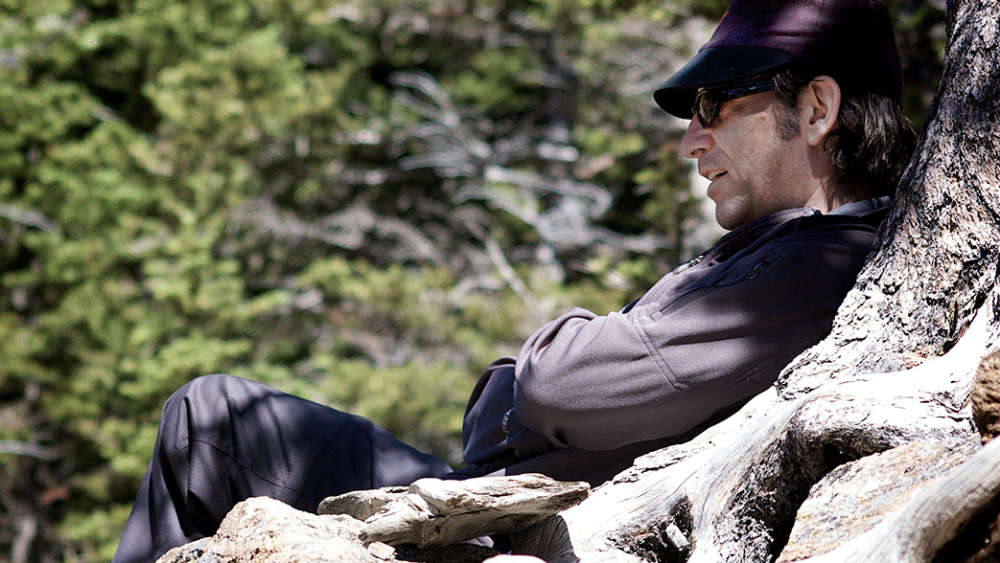Bold new way to pray dares you to go back to the past
Charismatic US preacher Brian Zahnd reboots Book of Common Prayer and other liturgy – for the here and now
It took a mid-life crisis for popular charismatic preacher Brian Zahnd to discover that liturgical prayers that were the answer to his soul-searching.
Founder and lead pastor of Word of Life Church in Missouri, Zahnd was “halfway to 90” when he turned for inspiration to liturgical prayer (those written throughout church history and organised for communal worship).
“I knew that the Jesus who had so captivated my heart as a teenager and who still held it as a 45-year-old man, deserved a better Christianity than what I was seeing in myself,” he tells Eternity.
“My Christianity felt weak … thin. I was like that line in The Lord of the Rings – ‘like butter scraped over too much bread’.”
“I needed prayers that lifted me up beyond the limitations of myself.” – Brian Zahnd
Zahnd felt a longing for prayers which were wiser than he is. Prayers which had been vetted, tested and proved by time and by the Christian church.
“An angry person prays angry prayers. A selfish person prays selfish prayers. A greedy person prays greedy prayers. A fearful person prays fearful prayers. I needed prayers that lifted me up beyond the limitations of myself.”
Zahnd says the practice of liturgical prayers changed his life because they changed him. “The primary purpose of prayer is not to get God to do what we think God ought to do but to be properly formed,” he says.
“People who say they don’t like liturgy often say, ‘liturgy is dead’, but that’s what philosophy calls ‘a category mistake’. Liturgy can’t be alive or dead; it can only be true or false. It’s the person who’s praying who’s either alive or dead. And when an alive person prays a true prayer, that’s when you have the opportunity for healthy formation.”
“Christianity is a received faith… I don’t get to make it up!” – Brian Zahnd
It’s not every day that you hear a popular charismatic preacher extolling the virtues of using the Anglican Church’s historic Book of Common Prayer. Nor is it every weekend that you find a room full of young Christians – many of them from Pentecostal churches – who have signed up for a Prayer School so that they can learn to adopt Zahnd’s six-week prayer regimen.
Yet teaching Prayer Schools, such as the one he recently held in Sydney, is what Brian Zahnd increasingly finds himself asked to do. He travels the world to share his beliefs that using rote prayers not only allows people to learn from past church leaders, but also teaches them to pray better in the here and now.
“Christianity is a received faith… I don’t get to make it up!” he declares. “The reason I can have faith in Christ is that it has been faithfully handed down through the generations. And those who have given me the gospel also offer me prayers that have the potential to form me in Christlikeness.”
Zahnd believes that “everybody has liturgy” in some form or another. All people come into the world as a blank slate and can be twisted out of shape by earth’s distorted ‘liturgies’ of empire and consumerism.
“So if there isn’t some other liturgy, I’m going to be someone who believes in violent power and who believes my own worth is determined by how much I can acquire … ‘I shop, therefore, I am’… And if I’m going to be properly formed as a healthy soul, as a wonderful mystical synthesis of the dust of the earth and the breath of God, I need some kind of structure.”
Zahnd challenges everyone to try his morning liturgy of prayer for six weeks.
As well as the Book of Common Prayer – which Zahnd describes as “the greatest gift of the Anglican church to the English-speaking world” – he also uses liturgy from the Orthodox church, the Psalms and other Scriptures. It wasn’t until people began to notice a difference in him – he was asked to share the liturgy he used – that he wrote it all down for the first time.
His Prayer School is structured around a morning liturgy of prayer which he challenges everyone to try for six weeks. It includes daily Bible readings, weekly prayers from the Book of Common Prayer and rote prayers as well as time for personal petition and contemplation.
“I never intended this track of morning prayer that I teach to be anything other than how I was discovering to pray in a way that’s healthy and formative,” explains Zahnd. “It was never a sermon, a teaching, a book. I was saving my own soul with the help of the Holy Spirit.”
“Relevance can be seductive…” – Brian Zahnd
Zahnd doesn’t pull any punches when discussing how great he believes the need is for liturgical prayer in contemporary churches.
“We’ve unwittingly trained people to arrive at church saying – to quote Nirvana – ‘Here we are now, entertain us, I feel stupid and contagious’ – and then, because we don’t want to lose the crowd we say, ‘All right then, here we go. Let’s put on the show!’”
Zahnd is quick to qualify that he’s not critical of churches incorporating rock and roll in their Sunday services, as an authentic response from people who’ve encountered Jesus Christ. Zahnd wants to use the art form they love, to speak of Jesus and worship him.
“I was part of bringing that in and we still have that [at our church],” Zahnd explains. “I embrace that in that I think we have to be relevant to our culture. On the other hand, I see its limitations. Relevance can be seductive – there is a degree to which we need to be able to speak a common language, and be able to speak in a way that someone can pay attention to us. On the other hand, you can end up like a dog chasing its own tail or just completely capitulating to the culture.”
From Zahnd’s perspective, the danger lies in the fact that rock and roll is an entertainment art form – with a stage, a singer and a group of spectators. As a result, it can be the opposite of liturgy, a Bible word from the Greek work leitourgia that means ‘the work of the people. “It’s the idea that the priest has what he does, and this liturgy is what the people do.”
The group pledged to pray 30 minutes of liturgical prayers every morning.
At his Prayer School in Sydney, the crowd of young people who attended were clearly on board. They pledged to pray 30 minutes of liturgical prayers every morning until All Saints Day (November 1). And for anyone who’s uneasy about the denominational cross-pollination of Zahnd’s passion for praying the liturgy, he has a final anecdote.
“I had a dream.” Zahnd says. “I was looking for the faith of Abraham. I was in New York City… and I eventually entered an old bookstore. At the back of the bookstore I found Abraham himself, seated in an old leather armchair, surrounded by old, neglected, tattered prayer books. And Abraham said to me ‘I understand that you are looking for my faith?’ and I said ‘Yes’ and he said ‘Sit down.’ And in my dream, Abraham talked to me about the necessity of using prayer books if I was ever to pray well. And after talking to him, Abraham gave me a kiss, and I woke up.”
So we’ve got a charismatic pastor teaching Pentecostal kids to pray the liturgy daily – because Father Abraham spoke to him in a dream. Surely there’s something in that for everyone.


